Highlights | Students making a difference
- Each year, 100 undergraduate and graduate students from UW are recognized for their work and achievements.
- Eight graduate and medical students from the UW School of Medicine were recognized for 2023.
- Common themes among the student honorees are a focus on mental and behavioral health services, trauma-informed care principles, empowering patients, and community- and health equity-focused approaches to medicine.
The Husky 100 recognizes 100 UW undergraduate and graduate students who are making a difference inside the classroom, in our communities and beyond. Meet the UW School of Medicine graduate and medical students who received this highly competitive recognition.
Danielle Bohonos
MPH, Community Oriented Public Health Practice; MD, Medicine
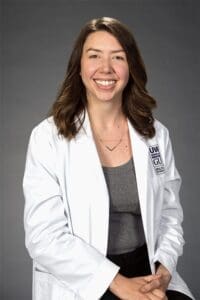
Danielle Bohonos
“I am a wife, mother, public health practitioner, and future physician who is passionate about improving youth mental health and wellness. I have been fortunate to study both public health and medicine at the University of Washington, which has given me the opportunity to explore my interests, ask questions, grow as an individual, and identify how I can best contribute to improving the lives of youth. As a community-oriented physician I will be able to leverage my medical expertise and public health practice to fill the gap in behavioral health services and find innovative solutions to the behavioral health challenges facing youth in my community.”
Leah Chen
BA, Psychology; BS, Neuroscience; MD, Medicine
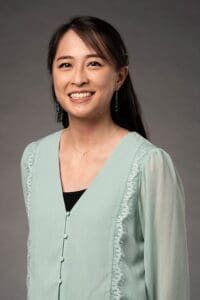
Leah Chen
“Because of my Husky experience, I have learned how powerful knowledge can be – especially in the context of reproductive health, and especially when working with survivors of sexual and gender-based violence. With my future career as a physician, I intend to honor the survivors I have met by employing and promoting trauma-informed care principles. I know that there is no such thing as “one-size-fits-all” when it comes to life-changing healthcare decisions, so by being upfront and transparent, I hope to empower my patients to make the best possible decisions for their lives.”
Emma Every
MD, Medicine
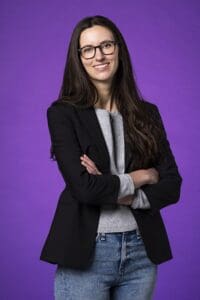
Emma Every
“I aim to become a physician fully embedded in a rural, underserved community, developing innovative healthcare solutions alongside my patients. My time at the UW School of Medicine has taught me how to partner with community members and follow their lead to jointly tackle healthcare injustice. From developing a NICU cuddling program for withdrawing newborns to creating educational materials to increase cervical cancer screenings in rural Montana, UW has already empowered me to take steps toward my goal.”
Natalie Koconis
PhD, Public Health Genetics; MD, Medicine
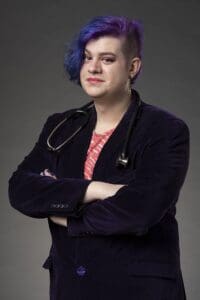
Natalie Koconis
“I’ve been involved in teaching, learning, and researching across diverse fields, from chemistry, biology, genetics, psychology – even creative writing and stand-up comedy, but the specifics are less important than the goals: destabilization of a cold, indifferent system that would see oppression and choose to ignore it, or even be complicit in it. I am proud of the reputation for assertive, unrelenting kindness that I have garnered, as someone unwilling to be a silent bystander to the ubiquitous, wasteful misery of the status quo. I am a mentor, a teacher, and a friend to anyone who has been hurt by the system because I acknowledge that without justice, there can be no peace.”
Sudiptho Paul
MD, Medicine
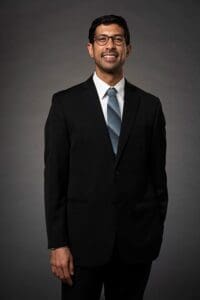
Sudiptho Paul
“The humanity of palliative care reflects the soul of healing in people’s narratives. In this profession, my spirit of care is focused on helping people solidify their narratives, thereby cultivating dignity for themselves and their loved ones, up until and beyond their last breaths. Nevertheless, people do experience medicine inequitably at the end of life, and I am driven to help identify and mitigate those gaps. Whether that be advocating for something as foundational as the right pronunciation of our names or researching something as meaningful as the goals-of-care conversations about what matters in life, my purpose as a future physician is anchored in helping empower people—especially those who are othered—to define their experiences not only during life, but also at the end of it.”
Rachel Rinehart
M.D. Medicine; M.P.H. Global Health
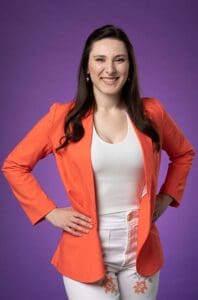
Rachel Rinehart
“My unique experience studying and researching mental health in 12 countries has informed my work in medicine and global health. As I move towards a career in psychiatry, I will continue to learn from and collaborate with colleagues at home and abroad to better serve our communities and patients. Thank you to my family, mentors, and friends for their support throughout this journey, and to the University of Washington for fostering an exceptional learning environment.”
Sarah Shaw
PhD, Global Health Metrics and Implementation Science
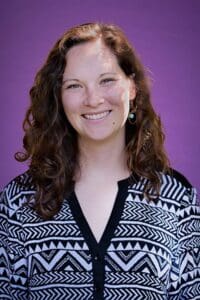
Sarah Shaw
“My experiences at UW, whether taking on new teaching roles, coordinating a research project with three community-based organizations in Seattle, or as an NPGH Fogarty Research Scholar in Kenya – in addition to having incredibly supportive mentors – have helped shape my career and life in a way that provides me with joy, community, and fulfillment, while also challenging me. I am interested in holistic service delivery models which address social determinants of health among communities who have been historically underserved and ensure individuals have access to affordable, culturally sensitive, and high-quality support. In my research, I aim to demonstrate how community-based participatory approaches can be combined with implementation science to conduct pragmatic research activities to improve health inequities and establish evidence-based approaches supporting the scale-up and sustainability of locally-developed interventions.”
Nathaniel Sisson
MD, Medicine
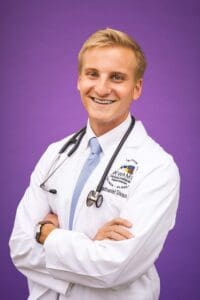
Nathaniel Sisson
“Medicine is a vocation that is intrinsically aligned with service, social justice, and the alleviation of suffering in others. Therefore, as a Rural and Underserved Scholar in the School of Medicine, I have endeavored to take my training beyond the classroom to address the societal determinants that continue to perpetuate health disparities across our communities. Having spent the past few years working to advance health equity in Indigenous, immigrant, and global populations through grassroots interventions and advocacy efforts, I am eager to continue working toward the goal that health—a fundamental human right— is accessible to all.”



